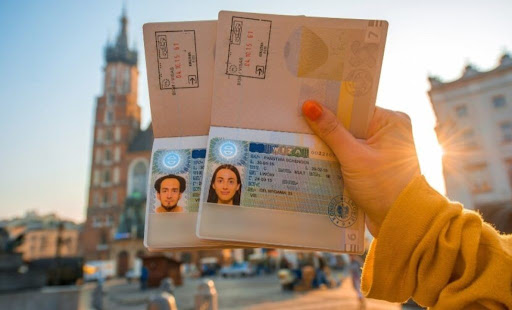Travel
Can I Seek A Job In The Schengen Area With A Tourist Visa?

A tourist visa, as its name suggests, is primarily intended for leisure and short-term travel purposes. It grants travellers the privilege to explore the host country’s attractions, culture, and lifestyle. While a tourist visa allows individuals to experience the Schengen Area temporarily.
It does not inherently provide authorization for engaging in employment activities. Therefore, we advise the applicants to carry the proof of accommodation and flight itinerary for visa along with them wherever they go. So, that they can show if requested anywhere while travelling.
Attempting to seek employment in the Schengen Area on a tourist visa may lead to serious legal consequences. Schengen countries have regulations and visa requirements in place to control immigration and labour market access.
Working without the appropriate work permit or visa can result in penalties, deportation, and even future travel bans.
Work Permits And Residency
For those genuinely interested in seeking employment in the Schengen Area, obtaining the correct work permit is imperative. Work permits are designed to ensure that job opportunities are made available to local citizens and residents first, while also addressing labour market demands.
Individuals must adhere to the specific work permit procedures of the host country, which often involve securing a job offer from an employer and meeting certain qualifications.
While seeking employment on a tourist visa is generally not permissible, there are alternative pathways for individuals interested in working in the Schengen Area:
- Job Search Visas: Some Schengen countries offer special job search visas that allow individuals to enter the country for a limited duration to search for employment opportunities. However, these visas typically have specific requirements, such as having a certain level of education and financial resources.
- Work Visas: Work visas are the appropriate route for legal employment in the Schengen Area. They require a job offer from an employer who sponsors the visa application. The employer typically initiates the work permit process in conjunction with immigration authorities.
- Student Visas: Pursuing education in the Schengen Area often comes with the opportunity to work part-time during studies and explore job prospects after graduation. Many Schengen countries provide a post-graduation job search period, during which students can seek employment relevant to their field of study.
Residency
While the allure of working in the Schengen Area is understandable, seeking employment on a tourist visa is not a viable or legal option. The Schengen countries have established clear rules and regulations to manage immigration and employment, and these must be respected.
Individuals who aspire to work in the Schengen Area should explore the proper channels, such as obtaining the appropriate work permit or considering alternative visa options, to ensure a lawful and rewarding experience. It is not good if you are doing a job illegally. Doing so can result in a legal action against you giving rise to imprisonment.
Consulting with immigration professionals and adhering to the legal requirements will pave the way for a legitimate and successful journey towards employment in the Schengen Zone.
What Is A Job Seeker Visa?
A job seeker visa is a visa that allows someone to enter a foreign nation to look for work. It is intended to make the job search process easier for international candidates who want to work in a given country but still need to get a job offer. The visa typically allows for a temporary stay during which the individual can look for work, attend interviews, and interact with possible employers.
The fundamental goal of a job seeker visa is to allow people to look for suitable work opportunities in the host country. It grants individuals legal permission to stay for a set period while actively looking for work.
Eligibility
The qualifications for obtaining a job seeker visa differ per nation. Applicants must typically demonstrate relevant qualifications, abilities, and financial resources to support themselves during their job search. The duration of a job seeker visa varies, but it is usually granted for a set period, such as six months to a year. This interval allows applicants to investigate the job market and find work.
Restrictions
Typically, job seeker visas limit the type of work an individual can do throughout their stay. The goal is to obtain a full-time, permanent job that matches their qualifications and skills.
Conversion to Work Visa
If an applicant successfully receives a job offer while their job seeker visa is valid, they may be able to convert it to a work visa or a relevant employment-based visa. The method and standards for this conversion differ depending on the country.
Application Process
Applying for a job seeker visa entails applying to the immigration authorities of the appropriate country. Documentation such as educational certificates, evidence of income, a valid passport, and a specific job search plan are usually required.
Job Search Support
Some nations provide job search support or resources to people with a job seeker visa. Examples of such opportunities are access to job databases, networking events, and job fairs.
Eligibility For Job Seeker Visa
- Minimum experience of 2 years.
- Graduate from the H+ University List.
- Minimum A1 level of proficiency is highly recommended.
- Financial Sufficiency
- Relevant Work Experience
- Conversant in English.
- 16 years of education
Before applying for a job seeker visa, it is critical to research and grasp the country’s specific requirements and rules. Remember that immigration policies and procedures might change for submission of visa documents.
So getting the most up-to-date information regarding submission of Schengen visa travel insurance, ticket and other documents from the appropriate authorities is best.




